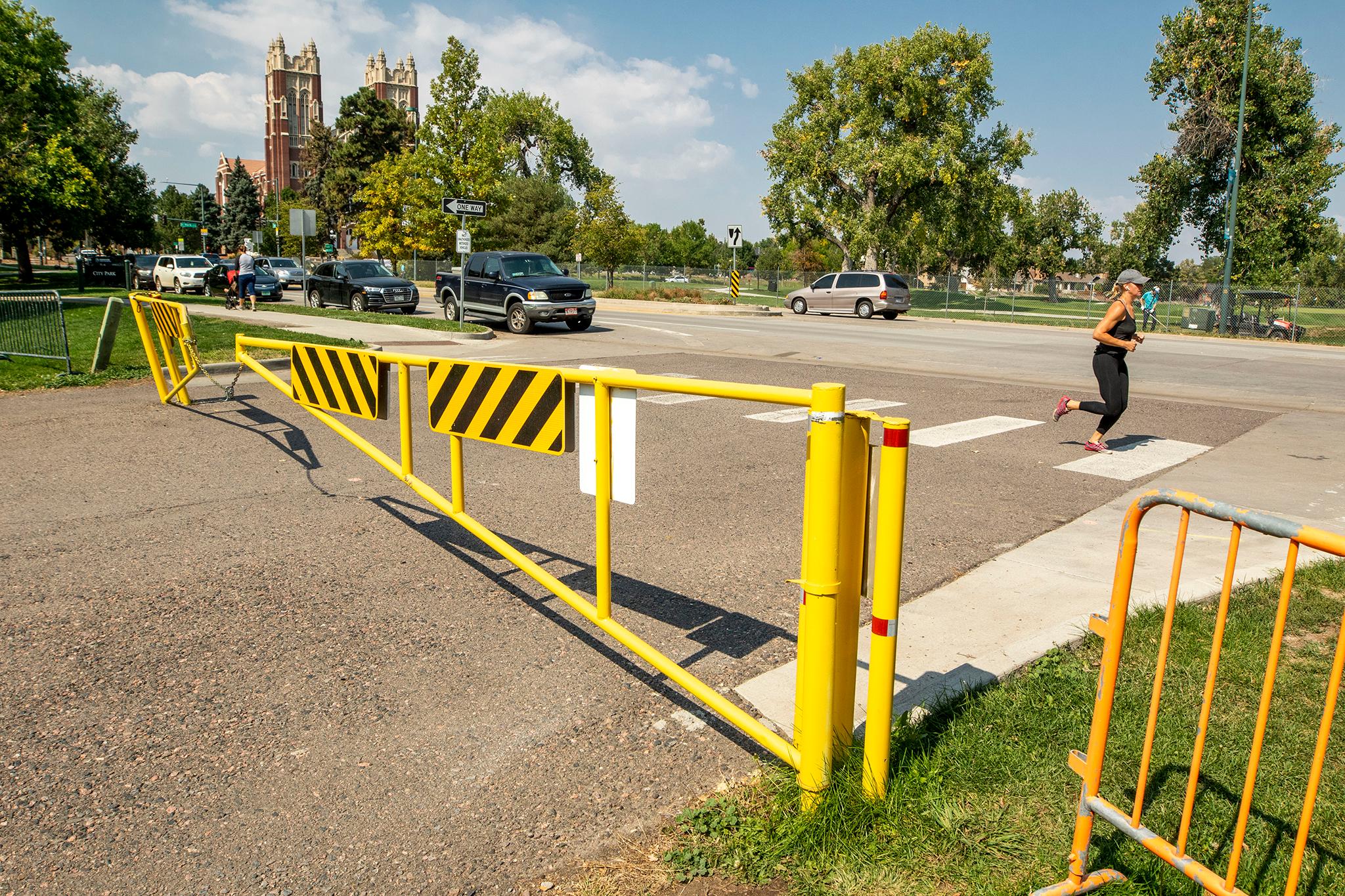Some of Denver’s major parks could stay mostly closed to cars and trucks long after COVID-19 is gone thanks to what park officials say has been a successful if accidental experiment launched when the pandemic hit.
As public gathering restrictions induced cabin fever and made sidewalks crowded with people trying to escape isolation, Denver closed the city’s major parks to vehicles in hopes of giving residents more room to roam and to prevent overcrowding as demand for park space grew.
Denver closed seven parks (mostly) to vehicles: Cheesman Park, City Park, Congress Park, Inspiration Point, Ruby Hill, Sloan’s Lake and Washington Park. All of those parks could see permanent changes, but the Department of Parks & Recreation is evaluating Cheesman, Ruby Hill and Sloan’s Lake right now.
“COVID has been a horrible impact to our country and the world. We’ve lost a lot of people,” said Scott Gilmore, deputy director of Denver Parks & Recreation. “But it’s actually also made people really appreciate their parks. It’s really made people go enjoy the parks in their communities.”
Susana Anderson is one of those people. The 83-year-old, who was picnicking with a friend on Wednesday at City Park, said she “absolutely” loves the parks without cars because she’s free to walk safely. Anderson would like parks to remain mostly car-free as long as people with mobility issues can access them.
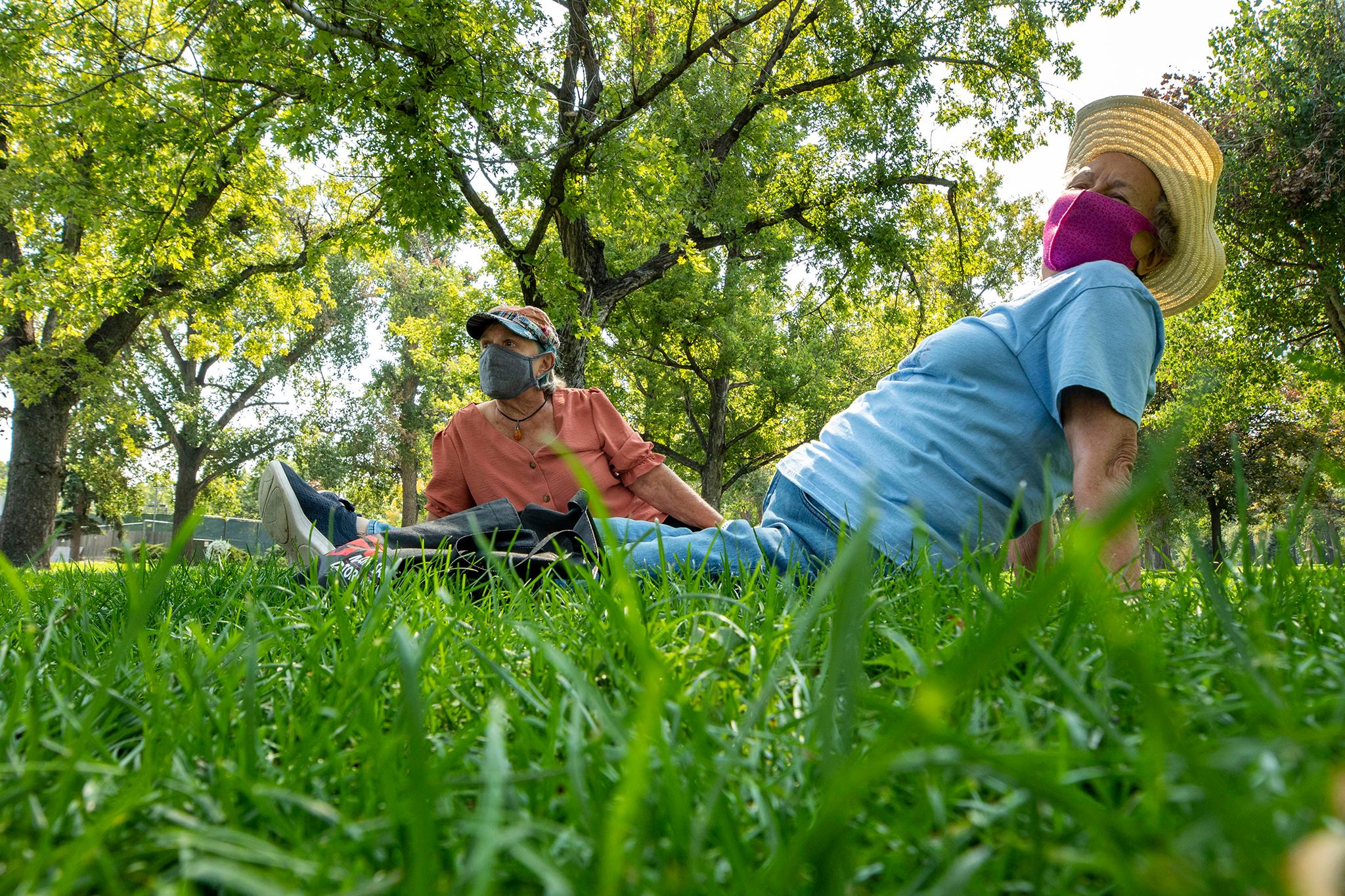
“On the weekends, everybody wants to be here now, but as elders, we probably would have to say we’re in favor of some sort of zoning or something that would have us not overrun (with cars),” Anderson said. “There’s so many people that drive from somewhere to bring their dog or the kids on the weekends. I mean, I’m sure it’s hard for them so I don’t mean to be an old grump.”
Making green spaces greener by banning cars and trucks is not a new idea. Denver typically closes some parks to private vehicles one weekend a month. New York’s mayor permanently banned cars in the country’s most well-known urban oasis, Central Park, in 2018. That decision came with controversy, and Denver’s plan is not without detractors.
Some people who live near parks say they feel entitled to on-street parking spots that might dwindle if people cannot store their cars on interior park roads. Others believe it’s unfair to limit access to recreational space owned by the people.
Ayinde Ademola was at City Park on Wednesday afternoon getting ready to play tennis. He and his wife moved to Denver from Brooklyn earlier this year, so they haven’t experienced the parks any other way than car-free. They live downtown and have a newborn — a combination that makes it hard to access certain parks without frustrations like finding parking and hauling baby gear, they said. And City Park is the closest tennis court to their home.

“I think it’s a disadvantage for people who don’t live close to the park,” Ademola said. “I mean, I drive here because it’s a nice, free tennis court. So if I have to go park a mile away because it’s a time where a lot of people want to play tennis, that’s not fair.”
Kim Price was hanging out at Inspiration Point Park in Denver’s northwest corner with her toddler on Thursday. Unlike City Park, where people tend to park illegally on 23rd Avenue, Inspiration Point has parking spots available though the main thoroughfare through the park is closed. Price said she stopped going to Sloan’s Lake Park because the lack of parking made the experience hectic.
“Parks should be open (to cars) because it’s the only thing that people can do,” Price said. “So it should be easier to get there.”
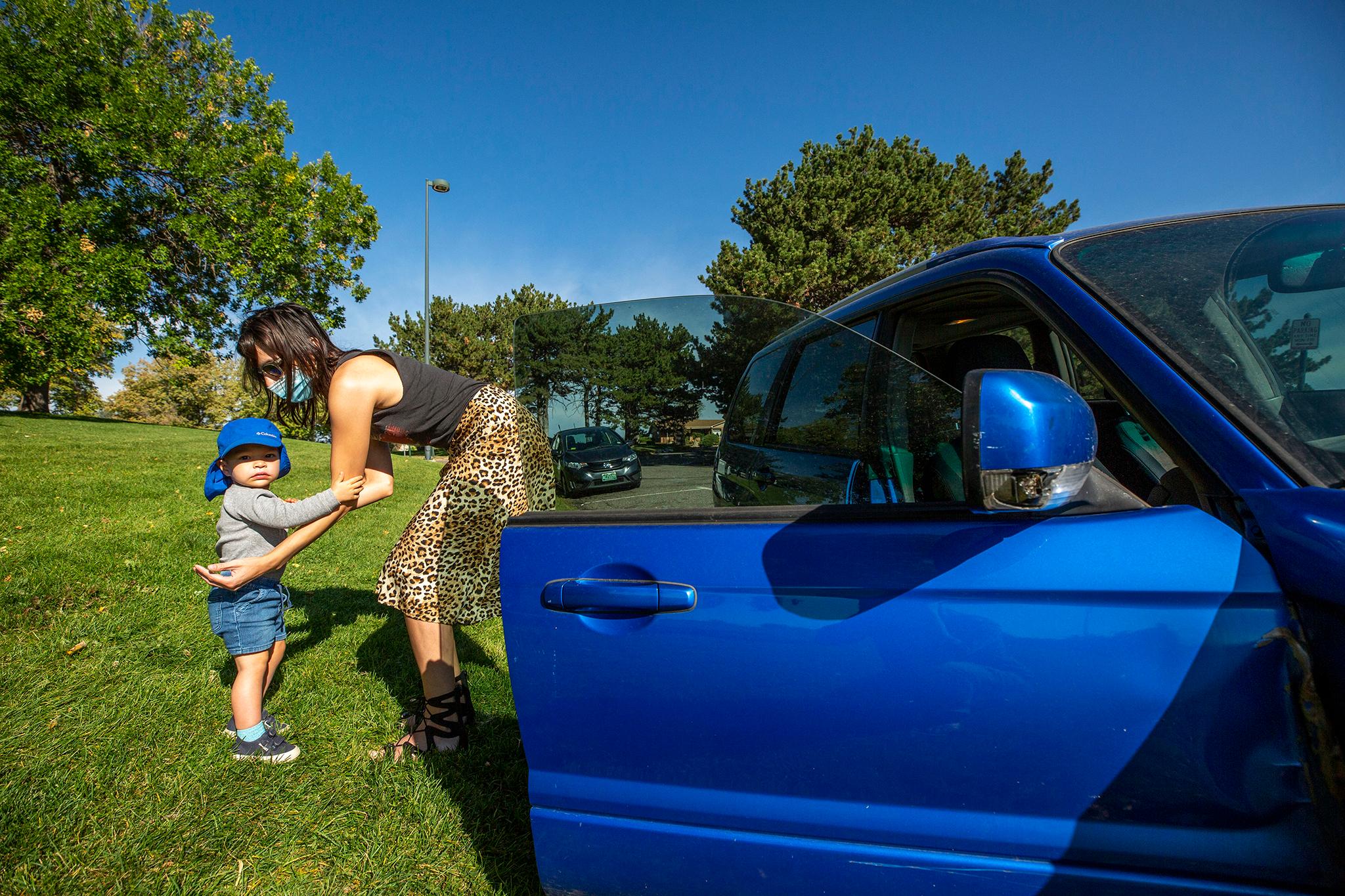
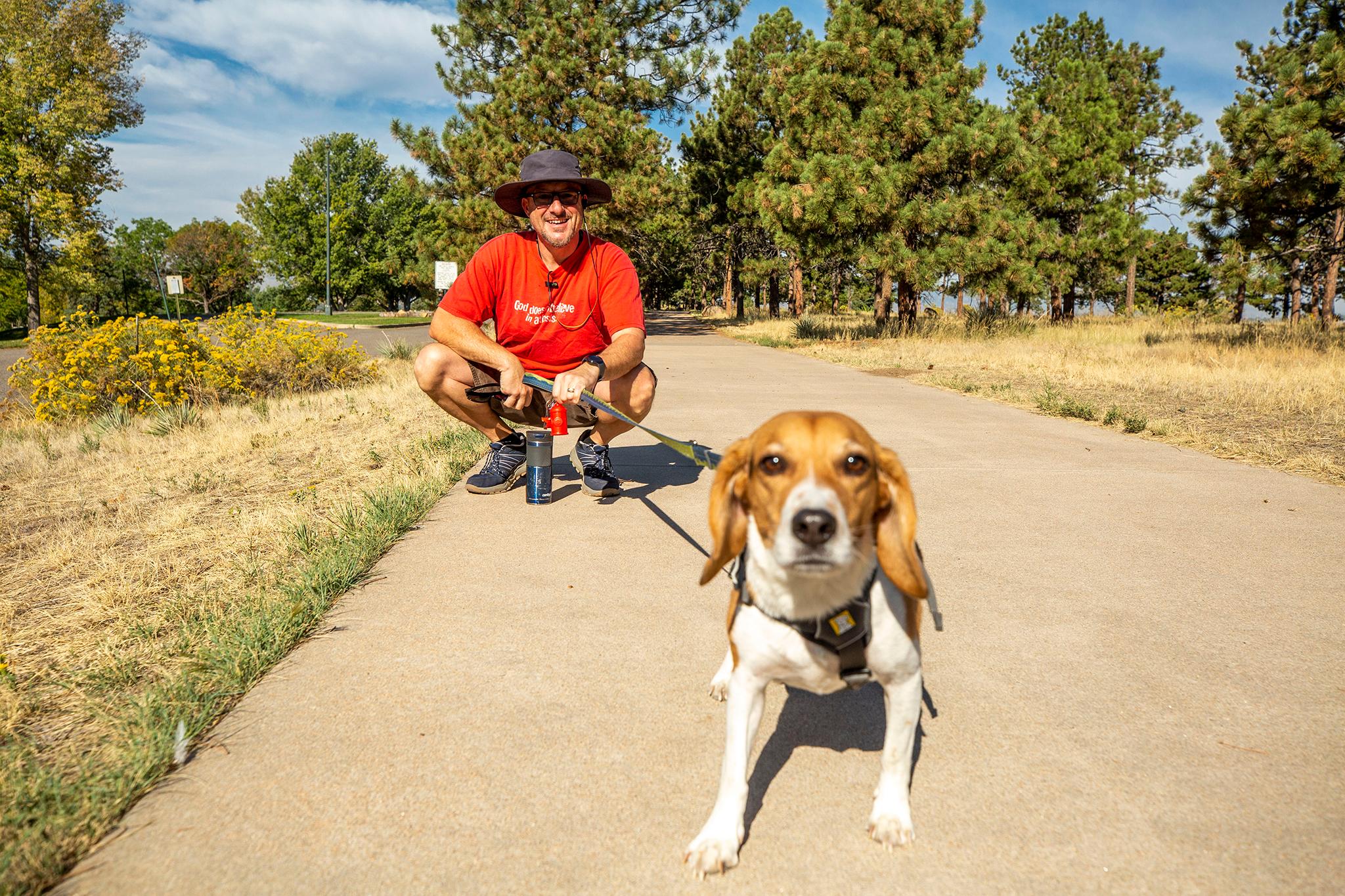
Brian Mabin typically walks to Inspiration Point because he lives nearby. He said parks have been a savior for people’s mental health during the pandemic. Mabin equates closing parks to cars with the government “telling people they can’t go to church on Sunday,” he said, referring to the limiting of public gatherings to slow the spread of COVID-19.
Still, “if you can walk in, that’s fine, as long as you got a place to park,” Mabin said.
Gilmore with Parks & Rec said Inspiration Point is a good example of the city being nimble based on how residents are using the park. While the main road through the park will remain closed on weekdays, officials have opened it on the weekends, he said, because it’s “busy, busy, busy.”
Mabin and Price, who both live near Inspiration Point, may be doing what the city intended with its new park rules. Often, Gilmore said, people prioritize going to “the hip park” like Wash Park. Lately, though, he said people are heading to smaller neighborhood green spaces.
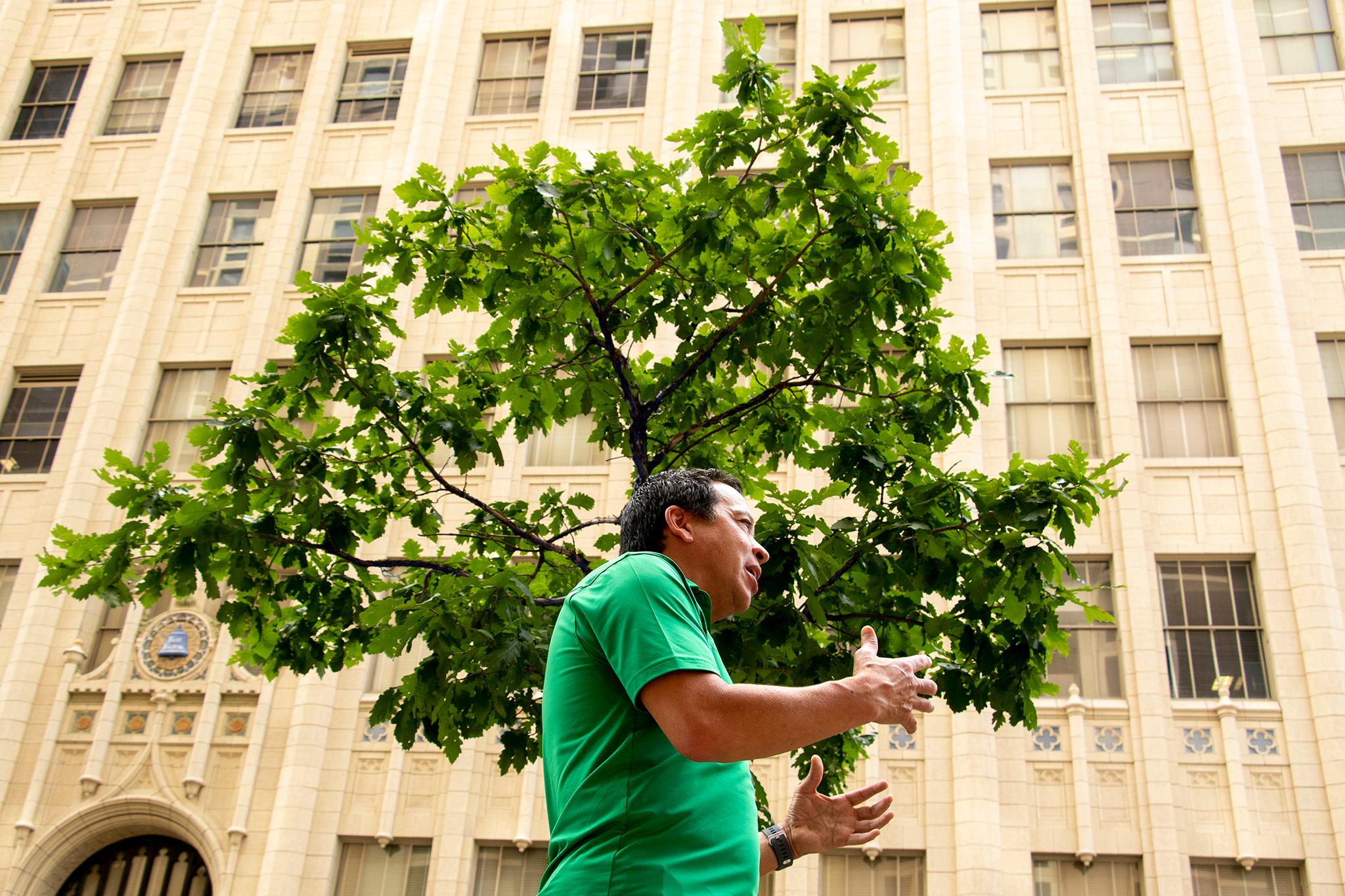
“We wanted to encourage people to stay close to home,” said Gilmore with the parks department. “You can go to any corner of the city and discover a 1-acre or 2-acre park in your neighborhood and go walk to it and understand that that might be the coolest park in the city. You just might never have explored it.”
All parks — and all neighborhoods — are not created equal. Which is why the city is not proposing a blanket car-free policy. Officials want to tailor the rules to each unique situation.
Because of a far-reaching form of racism known as redlining, Denverites who are white and wealthy are more likely to live near a public park, a University of Colorado Denver study found.
Inequity is one reason the city asked voters to approve a sales tax to expand park space in 2018. Denverites said yes. Now decision-makers are funneling a lot of that money to neighborhoods where people of color and lower-income earners tend to reside.
The city’s largest parks will remain mostly car-free throughout the public health crisis, but officials say they will make no final decision until they go through a public process. Right now they’re focused on closing most — but not all — roads to cars in Cheesman, Ruby Hill and Sloan’s Lake because they’re the least complex, Gilmore said.
Park planners will consider a number of other issues besides parking, Gilmore said. For instance: Is the park on a current or future bike route? Is there an adjacent “open street”? Do buses use the road? Is the park accessible for people with disabilities? Has wildlife thrived as a result of the closures? What do existing city plans dictate?
What city council members and their constituents say will play a big role, according to the parks department. Parks & Rec will release a survey next week to begin the public process.
Denverite’s Kevin Beaty contributed to the reporting in this article.

